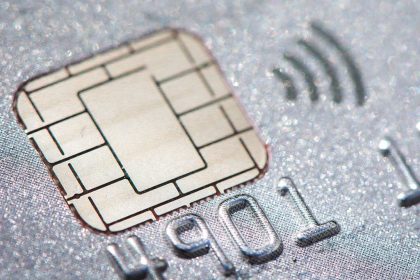Take your time when making your decision and be sure to use your card wisely. No matter how good your credit card is, it will only be a liability if used incorrectly.
Credit cards can be a great financial tool when used correctly. Selecting the right card will help you along your financial journey depending on what your goals are. Different aspirations will benefit from different types of credit cards.
You may be looking for a credit card to build credit, or perhaps you want to find a good company card for your growing business. Whatever your situation, there are a few things to consider. Look at these seven things when selecting your next credit card.
Interest Rates
The first thing you want to know about a credit card is its interest rates for purchases and cash advances. Credit cards with high interest rates will be more difficult to pay off, as payments will snowball if not taken care of immediately. Credit card debt is one of America’s biggest financial shackles and should be taken very seriously.
Of course, the best credit card strategy is to pay off your balance each month and avoid accruing interest in the first place. However, you might occasionally need a little credit buffer and will be grateful for a low-interest rate in a pinch. Careful budgeting will help you avoid such scenarios. It should go without saying, though, that you should look for the lowest interest rate possible when comparing different cards.
Application Requirements
There’s no vending machine for credit cards where you can select the card you want and receive it immediately. Credit card companies require you to fill out an application before they’ll give you a line of credit. Consumers with low credit scores or nonexistent credit history will be unable to qualify for certain cards — generally the ones with better perks. As a result, they must settle for other available options.
Before deciding on a credit card, look at its application requirements to see whether you fit the customer profile. If you have poor or no credit, you’ll only qualify for starter credit cards or cards built specifically for credit building. Once you have a high enough credit score and a longer payment history, you can start looking at better cards with stricter qualifications.
Annual Fees
Some cards require an annual fee in exchange for their use. This fee comes with a tradeoff, either in the form of a better rate or more exclusive perks. These benefits may make the fee worth it but consider your options carefully. Don’t let a tantalizing marketing campaign saddle you with a card that’s not worth its high yearly cost.
Conduct enough research and you might find a credit card with comparable perks without the annual fee. If you do the math, you might find out that that once-a-year fee is high enough to cancel out the benefits the card provides. Many cards don’t have an annual fee, which is a strategy numerous companies are taking to gain a competitive edge in their industry.
Also consider any penalties or hidden fees the credit card company might enforce with a particular card. Heavy penalties for late fees might not deter you if you diligently pay off your balance each month. However, fees for using your card at ATMs might well turn you away.
App Compatibility
Modern credit cards can be monitored and controlled from an app. Having this accessibility to your credit card enables you to keep track of your spending and can help you stick to a budget. By enabling you to better monitor charges, an app will keep your card more secure as well. Any card that has a compatible app should shoot up your shortlist of options.
The usefulness of a credit card app will depend on the company. If you’re curious, open up your app store and search the name of the credit card company you’re considering. Look at the app’s overview, read reviews, and download the app for yourself to see what it’s like. What you discover may be enough to sway you toward a selection.
New app features include the ability to activate and deactivate your card at will and check your balance and schedule payments 24/7. You can even use a mobile wallet for fast and secure payments. As the credit card industry evolves, there will be bigger and better features to watch out for.
Reward Programs
The first reason you should use a credit card is to build up credit. A good credit score helps you get approved for loans and qualify for lower rates on them. Another good reason to use a credit card is for the rewards programs they offer.
Using a credit card for purchases you already plan to make can tack on some earnings to your habitual consumer activity. One of the most common rewards is cashback, giving you a percentage of earnings based on what you pay for using your card. Other popular rewards programs award points for purchases at your favorite stores or airline miles to be used for travel.
Card Security
Credit card fraud cost consumers worldwide roughly $24 billion in 2018 alone. Stealing card information is the easiest form of identity theft and one of the most profitable. Without proper diligence and security, you could see your money get swiped up from right under your nose.
All credit card companies have fraud protections and a cybersecurity plan in place, but some take their efforts above and beyond. Become familiar with a card’s security features and make sure they’re up to par before the card makes a home in your wallet.
Credit Limits
What do you need your credit card for? If you plan to use it to make small daily purchases to build up credit over time, you won’t require a large line of credit. If you’re going to use the card for travel or for business expenses, you’ll need a heftier limit.
If the credit limit matters to you, be sure to check the available amount before making a commitment. It would be a shame to acquire a card only to realize that you don’t have enough wiggle room to do what you want.
Now that you know what to look for, your search for the perfect credit card will be more fruitful. Take your time when making your decision and be sure to use your card wisely. No matter how good your credit card is, it will only be a liability if used incorrectly.
Please check out latest news, expert comments and industry insights from Coinspeaker’s contributors.




